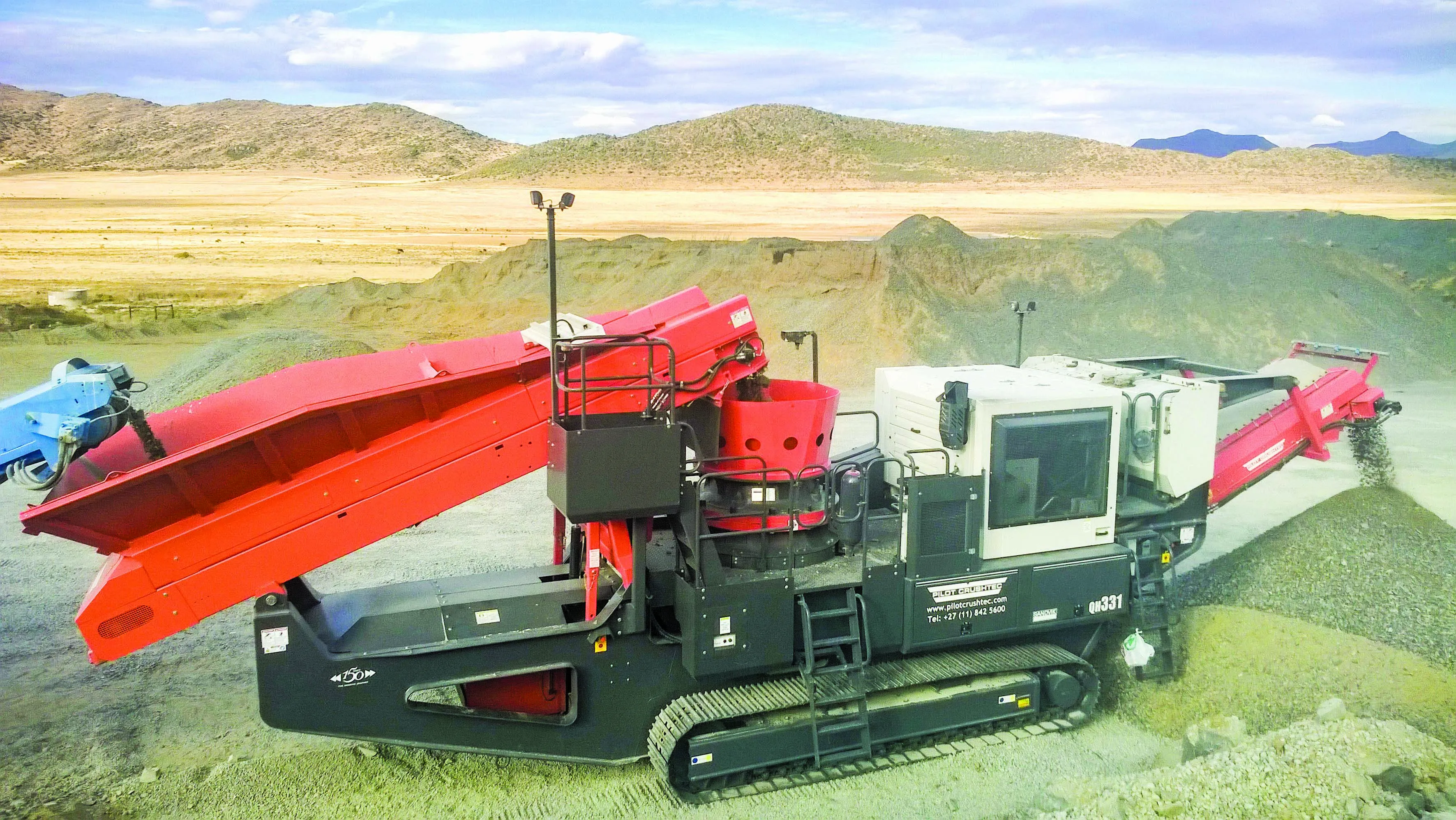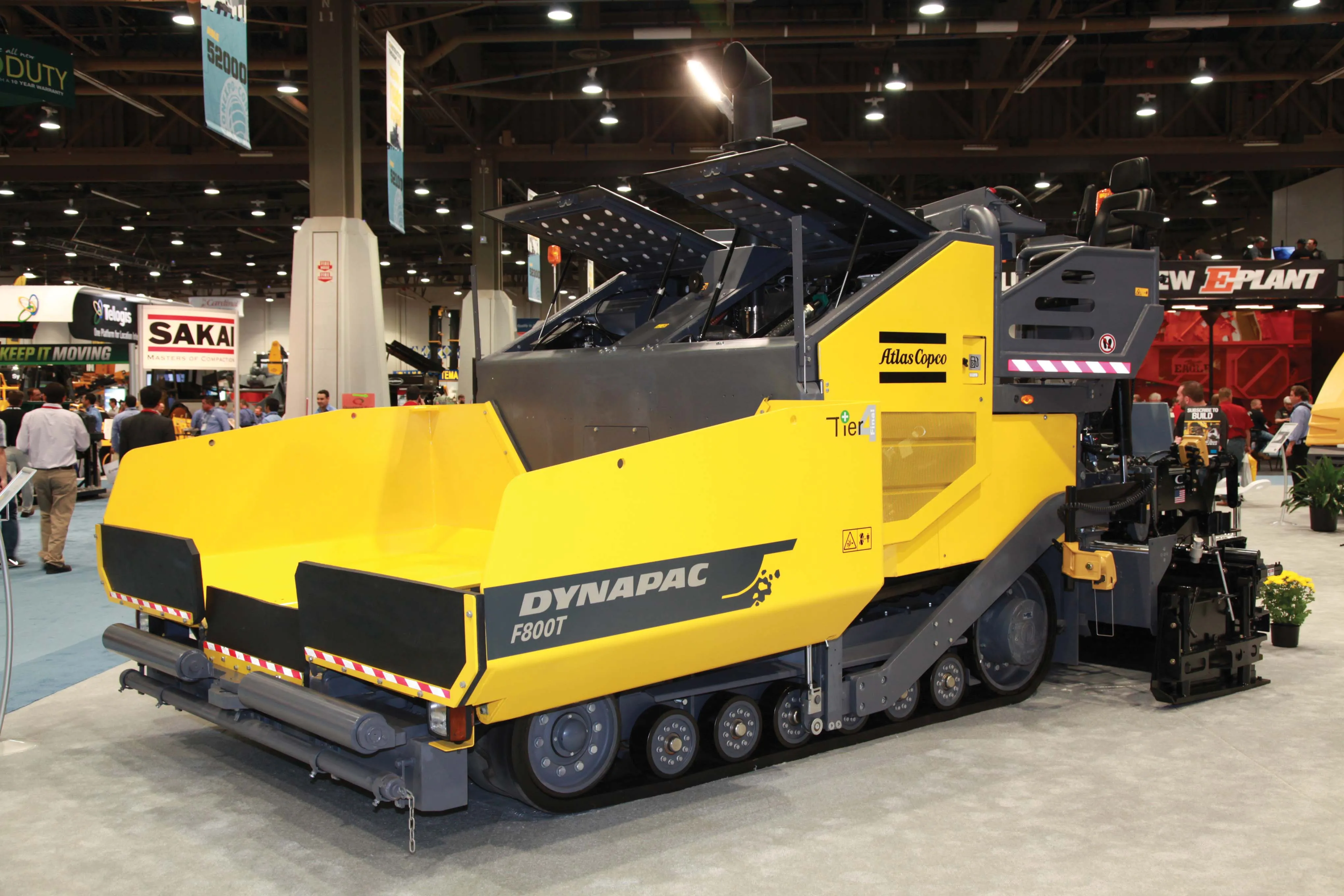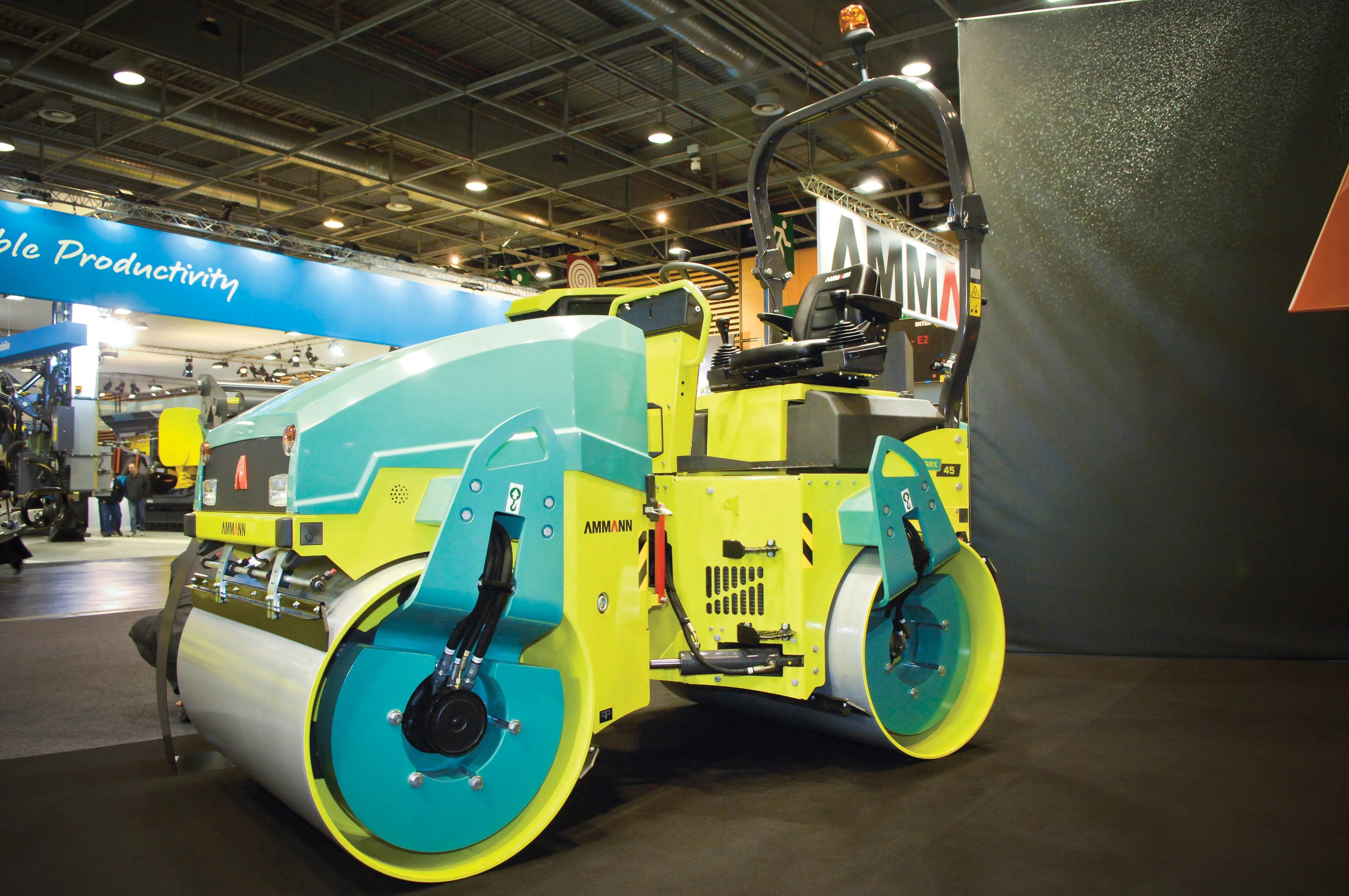Crushing equipment from Sandvik is proving productive in a difficult application involving hard volcanic rock in South Africa. The QH331 tracked mobile cone crusher has been supplied by Sandvik Mobile Crushers and Screens distributor, Pilot Crushtec, which recommended the machine for this difficult duty. The machine is working as part of a crushing train producing base material for a road construction project in South Africa’s Eastern Cape. Pilot Crushtec, founded in 1990, is helping a customer invest in th
May 5, 2015
Read time: 4 mins

Crushing equipment from Sandvik is proving productive in a difficult application involving hard volcanic rock in South Africa
The QH331 tracked mobile cone crusher has been supplied by325 Sandvik Mobile Crushers and Screens distributor, 7458 Pilot Crushtec, which recommended the machine for this difficult duty. The machine is working as part of a crushing train producing base material for a road construction project in South Africa’s Eastern Cape.
Pilot Crushtec, founded in 1990, is helping a customer invest in the Sandvik QH331 cone crusher to be used as part of a train crushing base material for a road construction project, in Tarkastad, Eastern Cape province of South Africa.
The QH331 mobile cone crusher is the successor to the QH330, and is a compact, high quality machine designed to meet the most exacting aggregate product quality demands. This is achieved through the use of the Sandvik CH430 cone crusher on a tracked chassis. The versatility of the QH331 is one of the main benefits to customers according to Sandvik. The machine is highly adaptable for use in varying applications as it is available with a choice of six different crushing chambers and a variety of bush settings.
The CH430 is an innovative crusher design from Sandvik’s Hydrocone range, which the company claims is one of the most technologically advanced cone crushers on the market. The hydraulically adjusted Hydrocone is also said to be one of the most versatile and maintenance-friendly cones available today as it can be serviced entirely from above, which helps to reduce service times and costs. The equipment is said to be compact and easy-to-service, suiting it to use in mobile installations.
The material in this Eastern Cape road construction application is dolerite, which is a hard volcanic rock with a high work index that makes it very difficult to crush. However this hardness, and the fact that it is not affected by the weather, makes it highly suitable to be used as base material for roads. The requirement for this specific project is not only to crush the material, but also to shape it. The QH331, and its CH430 cone, is the ideal to tool to achieve this requirement as it utilises the Sandvik developed cubical shape crushing techniques to produce material of excellent shape and high quality.
The CH430 cone is said to feature a deeper crushing chamber than rival machines. The company claims that this means the material remains in the chamber longer as a result, which helps optimise both reduction and shape. The CH430 is also equipped with a hydroset closed side setting (CSS) regulation system. This allows the operator to adjust the CSS whilst crushing using the main control panel. The flexibility of the CSS system on the QH331 has been of major benefit on this application as it has allowed the machine to produce the required gradation of 0-38mm with a CSS of 20mm.
The QH331 also features constant liner performance (CLP) as a standard feature on the CH430 cone liners. This is said to result in an almost vertical profile in the feed opening area, meaning that the shape of the chamber remains virtually unchanged throughout the life of the liners, even on tough volcanic rock such as dolerite. This has provided the South African customer with a number of advantages on this application according to the firm. These include constant feed acceptance capability, increased output of a high quality product, and increased liner life helping to reduce the total cost/tonne of operation.
The QH331 is fitted with a CAT C9 or C9.3 engine offering customers optimum efficiency and low fuel consumption through its direct drive system. The customer has been pleased with how the QH331 has been operating, as the machine has achieved a production rate of 120-160tonnes/hour, while using just 35-40litres of fuel/hour.
The QH331 tracked mobile cone crusher has been supplied by
Pilot Crushtec, founded in 1990, is helping a customer invest in the Sandvik QH331 cone crusher to be used as part of a train crushing base material for a road construction project, in Tarkastad, Eastern Cape province of South Africa.
The QH331 mobile cone crusher is the successor to the QH330, and is a compact, high quality machine designed to meet the most exacting aggregate product quality demands. This is achieved through the use of the Sandvik CH430 cone crusher on a tracked chassis. The versatility of the QH331 is one of the main benefits to customers according to Sandvik. The machine is highly adaptable for use in varying applications as it is available with a choice of six different crushing chambers and a variety of bush settings.
The CH430 is an innovative crusher design from Sandvik’s Hydrocone range, which the company claims is one of the most technologically advanced cone crushers on the market. The hydraulically adjusted Hydrocone is also said to be one of the most versatile and maintenance-friendly cones available today as it can be serviced entirely from above, which helps to reduce service times and costs. The equipment is said to be compact and easy-to-service, suiting it to use in mobile installations.
The material in this Eastern Cape road construction application is dolerite, which is a hard volcanic rock with a high work index that makes it very difficult to crush. However this hardness, and the fact that it is not affected by the weather, makes it highly suitable to be used as base material for roads. The requirement for this specific project is not only to crush the material, but also to shape it. The QH331, and its CH430 cone, is the ideal to tool to achieve this requirement as it utilises the Sandvik developed cubical shape crushing techniques to produce material of excellent shape and high quality.
The CH430 cone is said to feature a deeper crushing chamber than rival machines. The company claims that this means the material remains in the chamber longer as a result, which helps optimise both reduction and shape. The CH430 is also equipped with a hydroset closed side setting (CSS) regulation system. This allows the operator to adjust the CSS whilst crushing using the main control panel. The flexibility of the CSS system on the QH331 has been of major benefit on this application as it has allowed the machine to produce the required gradation of 0-38mm with a CSS of 20mm.
The QH331 also features constant liner performance (CLP) as a standard feature on the CH430 cone liners. This is said to result in an almost vertical profile in the feed opening area, meaning that the shape of the chamber remains virtually unchanged throughout the life of the liners, even on tough volcanic rock such as dolerite. This has provided the South African customer with a number of advantages on this application according to the firm. These include constant feed acceptance capability, increased output of a high quality product, and increased liner life helping to reduce the total cost/tonne of operation.
The QH331 is fitted with a CAT C9 or C9.3 engine offering customers optimum efficiency and low fuel consumption through its direct drive system. The customer has been pleased with how the QH331 has been operating, as the machine has achieved a production rate of 120-160tonnes/hour, while using just 35-40litres of fuel/hour.








